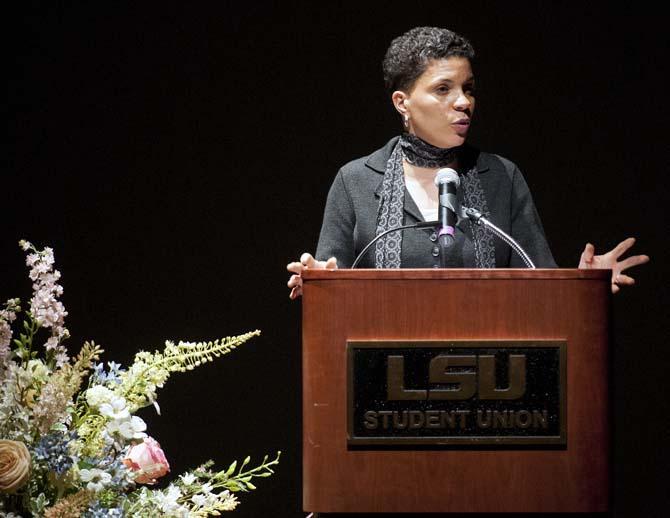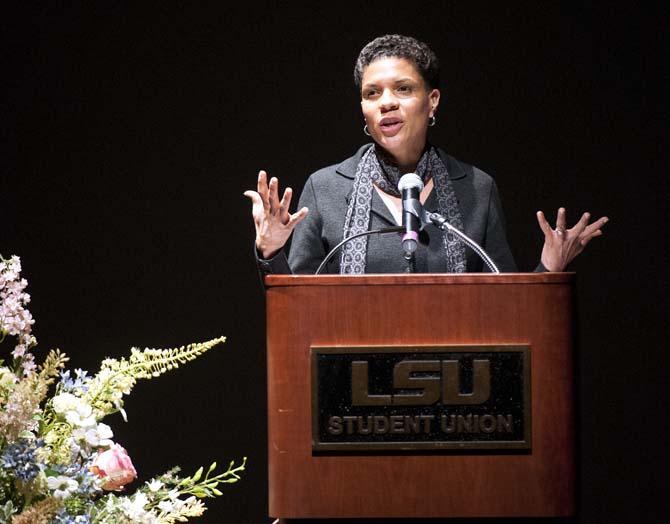Michelle Alexander, civil rights lawyer, advocate and professor at Ohio State University, provided solutions like activism, compassion and legalizing drugs to the castle system in the U.S. caused by the disproportionate number of incarcerated African-Americans when she spoke Thursday in the LSU Student Union.
Alexander wrote a book on the subject matter called “The New Jim Crow: Mass Incarceration in the Age of Colorblindness.” Louisiana leads the world in imprisonment on a per capita basis, she said.
Alexander said America faces a time of confusion, watching President Barack Obama and his family on television while the prison system overflows with disproportional amount of African-Americans.
“There is no denying that we’ve created a vast new system of racial and social control that was not imagined when Dr. King was assassinated,” Alexander said.
Once a skeptic of the idea, Alexander spoke on her tipping point that led her to research and become an advocate for this subject.
When working as a civil rights lawyer and launching a campaign against police racial profiling, one young African-American approached her with a detailed outline about violent encounters with the police and the police planting drugs on him.
Alexander said when she found out he had a previous drug charge, she refused to represent him.
“I had an awakening that even civil rights lawyers like myself had become part of the problem,” Alexander said.
Since her book was first published in 2010, Alexander said there have been public policy changes for prison downsizing, but most of it is due to the economic crisis.
“It has less to do with any newfound care, compassion and concern with those labeled as criminals,” Alexander said.
Additionally, she said certain states in the U.S. are seeing a substantial prison boom focused on targeting illegal immigrants.
Alexander said there are many ways to prevent the problems the war on drugs produces, such as legalizing marijuana.
She said most Americans have committed drug related crimes at one point in their lives such as drinking underage or experimenting with other drugs, citing Obama as an example.
“The truth is, we are all criminals,” Alexander said. “I think if we fail to acknowledge the basic humanity of those who we have labeled criminals, this system of incarceration will continue for a very, very long time.”
Encouraging students to study and become activists on the subject, Alexander said students help to solve the problem.
Business freshman Lauren Brown said after hearing from Alexander, she would like to become more active on campus.
“I would like to know what there is to do,” Brown said. “This is something people should at least be aware of.”
Anthony Basco, psychology senior, said he enjoyed how Alexander outlined answers to fix the problem and agreed with her talking points.
Alexander argued that this mass incarceration leads to a caste system in the U.S.
“The failure to recognize humanity is the basis of any caste system in the world,” Alexander said.
Brown said living off campus, she has noticed police cars circle the neighborhood, but sometimes questions their intentions because they focus on young teens in her neighborhood.
“I know they keep a watchful eye, but it’s not always in the best way,” Brown said.
“There is no denying that we’ve created a vast new system of racial and social control that was not imagined when Dr. King was assassinated.”






